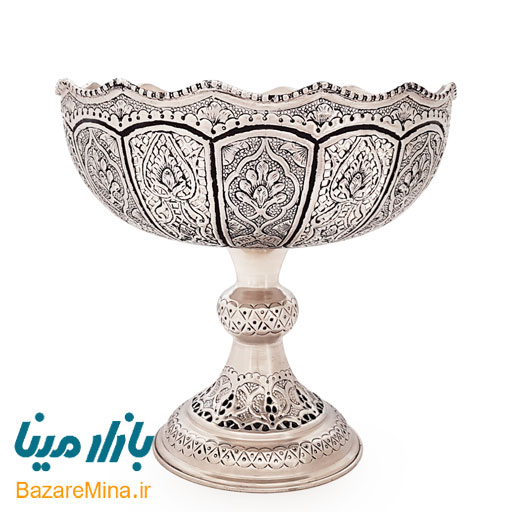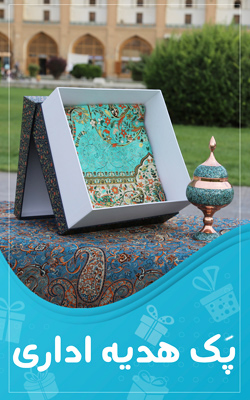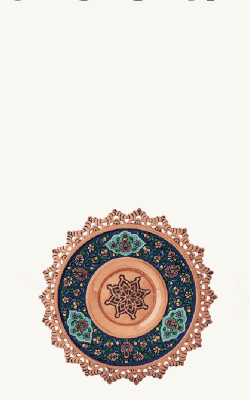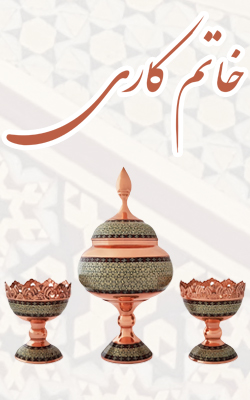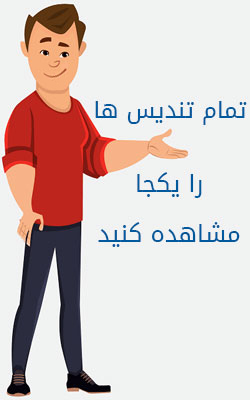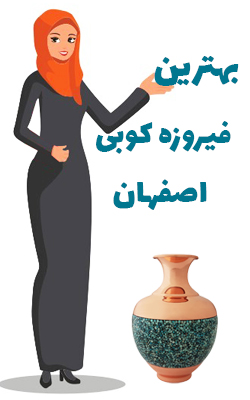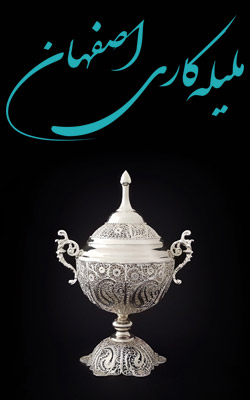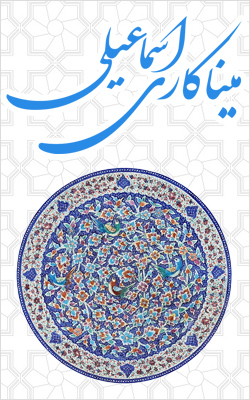- نویسنده: امید حسینی
Toreutics of Isfahan can be seen in most stores of this city because a lot of people are interested in it. This art is made with delicacy and effort to produce an eye-catching piece of art. One of the traditional arts of Iran, specifically Isfahan, is the art of Toreutics (engraving) which is made by making designs with a hammer and burin on a metal surface. A lot of Persian Handicrafts can be made with this metal working on gold, silver, brass, bronze, steel and copper which attracts the attention of people interested in art. Introduction One of the popular arts which has a lot of fans around the world is Toreutics (engraving) which is a metal working handicraft. Gold, silver or other metals are engraved with a chase to make fabulous designs. The art of Toreutics (engraving) was of high value in the Bronze Age and different countries consider it in making their dishes. There are various types of this art such as the Greek style, Acharmenid-Persian-Sassanid style, beaten copper and Tsuba gold Toreutics which were used for different purposes. Toreutics in Iran has a long history because people used it to make handicrafts and exquisite metal working. Previously, this art was started by engraving stones in the mountains to make palaces or monuments. Later, the art of Toreutics was made because it was an art which made fabulous and magnificent designs and pictures on a surface made of metal by engraving with a burin or hammering. The metals could be gold, silver, cover, steel and brass. Among all, copper was more soft and flexible, so it was mainly used. In addition, this metal was durable and could be kept for a long time. Therefore, most Toreutics (engraving) products were made on copper. History of Engraving Toreutics art is one of the traditional arts of Isfahan which can be done in a workshop. A master of this art concentrates on the designs which are made by a special device on metal. Iranian Toreutics has generally three styles based on the engraving, lattice, mid-relief and relief which are Isfahan style, Tabriz style and Shiraz style. In the first one, hammer is responsible to make the designs and the burin is deep; while, in the second one, motion and pressure of wrist makes the engraving and the burin is shallow and flat. In the third style, the designs are usually chicken and bird or Persepolis on silver dishes.Engraving may date back to the 1st millennium and the designs on dishes in Timurid Era were similar to that in Seljuk Era. Safavid Era was the time of flourishing Toreutics in Iran because silver beating was also popular and a great attention was paid to this art. Isfahan is known as the center of Toreutics (engraving) and a lot of skillful masters have worked on this field to make eye-catching handicrafts to bring beauty to every decoration. In exquisite type of Torreutics (engraving), the troughs and flat parts appear as a three-dimensional view. Most holy shrines of Shia leaders are made of exquisite Toreutics of Isfahan style. Design of Toreutics Iran engraving has been famous for long years. The designs of this artwork depend on the taste of the master and the pattern to make it. Engraving is an ancient art in Iran because there are a lot of things found in historical excavations of various regions of Ira. As the aterials needed for making this handicraft were handy in the past, a lot of products were made with this fabulous art. Toreutics (engraving) of Isfahan is the most eminent one because of its development in the Safavid Era. Current engravings of this city dates back to the Second Pahlavi Era but the flourishing time of this art is in Safavid Era because of the attention and interest of kings to art. In Qajar Era, this art was demolished due to their hatred of the Safavid Era. The art of engraving was not only worked on silver, but also brass, copper and bronze were popular at that time in Isfahan. Most of the artworks and metal workings of Safavid Era were destroyed in Qajar Era but later in the second Pahlavi Era by the support of some professional masters in their private workshops, some qualified students were trained and worked in this field. Isfahan crafter is famous all over the world. People are keen on buying handicrafts, so the masters of Isfahan who make them deserve high respect and value. Nowadays, Toreutics (engraving) on copper is a really popular handicraft especially for those who do not afford to buy silver and gold. Although engraving on silver and gold is more luxurious and financially valuable, engraving on copper has an artistic value among art lovers. Making Toreutics (engraving) handicrafts is an amazing art which has a lot of fans because a piece of metal can be designed with fantastic designs of flower, bird, paisley, arabesque and Persepolis based on the location of making it and the product itself. The following tools are the most important ones which are necessary to make a metal working piece of art. • Hammer: it has two types of light weight and heavy weight which can be varied from 75 gr to 1 kg. Isfahan toreutics is among the most popular handicrafts of this country because a great mixture of art, love and attention is spent to make such a fabulous artwork. In order to increase the quality of artwork which is made by this art, exact required tools and devices should be used. Therefore, there are various thickness sizes for the metal and burin which are going to be selected. Two main steps should be passed to make a fantastic Toreutics (engraving) handicraft: • Keep the surface clean and tidy away from humidity, dust and oil Persian handicrafts have numerous fans in different parts of the world. These arts are made by a close delicacy and attention to create the greatest artwork which can be memorable for long years. B. Pouring tar on empty and circular dishes: in the second way which is related to circular dishes, these steps should be passed: 2. Transferring design: there are some techniques to stick the design on the surface. A. Using coal powder • Put the ready-made pattern on a piece of metal B. Direct transfer of design on the surface Tips There are different styles of Toreutics (engraving) such as embossed, mid-relief, gridding and some other ways which depend on the type of product which is going to be produced. The history of Toreutics (engraving) has had a lot of challenges from it evolution. Various cultural, political, economic and social criteria affect it. It was forced to demolish, revive, flourish and survive during all years. Some magnificent handicrafts of this fabulous art are kept in famous museums in Iran and around the world to keep this metal working alive. Some influential masters of this field in Isfahan who had a great role on the development of this art are listed below but this list is not limited to them because there are a lot of other masters in different regions: Master Zofan, Master Ein Alghazaei, Master Dehnavi, Master Khajeh Shirani, Master Finastian, Master Alamdari, Master Bozorgian, Master Sameti and Master Ghaderan. Products A lot of handicrafts are made with the excellent art of Toreutics (engraving) which can attract the attention of every viewer. They also can be considered for practical and ornamental purposes at home or workplace. Some of these metal working products which can be made with a variety of metal types or mixed with some other arts such as Minakari (enameled) and Khatam Kari are listed below: • Vase • Fruit dish • Nuts dish • Sweet dish • Clock • Sugar pot • Panel • Plate• Bowl • Tray Toreutics handicrafts of Isfahan are usually done on copper so they are strong and make a beautiful design of art which has an attractive harmony of colors. A toreutics plate and a panel of toreutics are the most popular samples of this great art which can have bird and flower or gilding designs. Those who are interested in magnificent pieces of art can have a collection of Toreutics (engraving) products in their homes or an engraving panel on the wall of their office to bring beauty and freshness to their atmosphere and take advantage of its beauty. There are a lot of handicrafts stores in different cities of Iran. Isfahan has the highest number of stores to sell art lovers the products in the highest quality. There are also numerous online handicraft stores which offer the customers high quality products with the most reasonable price. It can be easier for people to order online and save their time, money and energy.
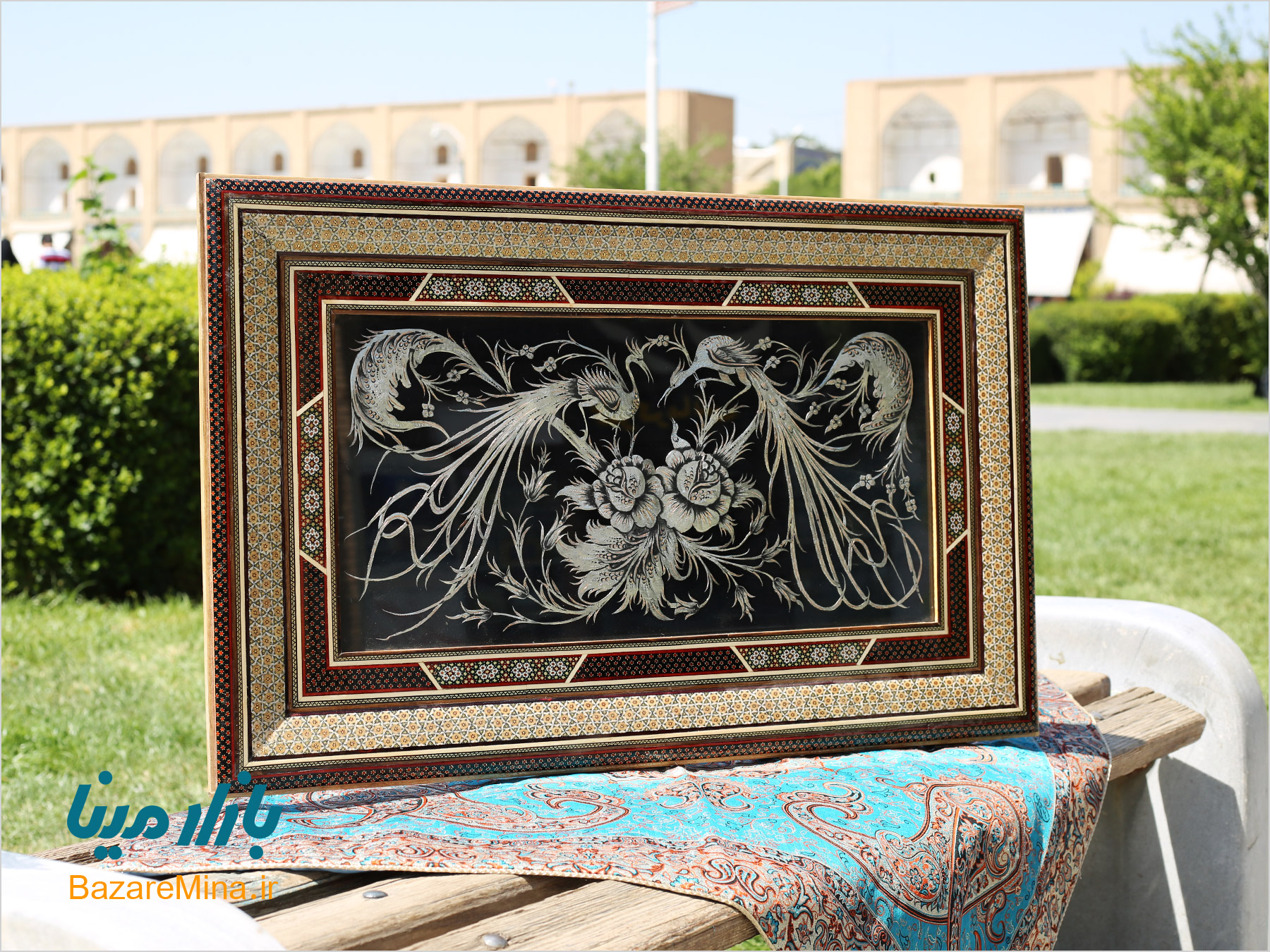
Toreutics Art
Iran Engraving


Isfahan Crafter
Materials
• Burin: it has a length from 10 to 20 cm made of steel. The best type of burin is known ad silver steel burin.
• Tar and stucco
• Scissors
• FireIsfahan Toreutics
Steps to Make Toreutics
1. Pouring tar on dishes: there two ways for pouring tar on the dishes which are going to be engraved:
A. Pouring tar on flat surfaces: the following activities should be done to pass this step:
• Cover the surrounding area of the surface with a stone, wood or brick in order to avoid spilling tar on the floor
• Keep the body of the surface wet in order not to let tar stick to it
• Pour the melted tar with a spoon on the surface with the desired thickness and diameter
• Wait to make the tar dry and tough to start the work of engraving
Persian Handicrafts
• Keep the surface of the dish clean
• Put the dish over fire
• Pour tar on the dish to be completely filled and be without any bubbles
• Make a grid design on it by hammer and chisel
• Transfer the lines of the work on metal
• Put coal powder on the paper of design
• Let the powder pass the holes of paper
• Make the lines clear with a pencil and start engraving
• Transfer the design on metal by a pencil or a sharp thing directly
C. Using carbon paper
• Clean the surface of the metal away from any dust and oil
• Stick carbon paper on the surface
• Put the original design on carbon paper
• Draw on lines of the original design with a pencil
• Take original design and carbon paper away
• Complete the lines which are not fully drawn
• Tar should be put on the fire; then some stucco should be added to it to be mixed with water to be flexible enough for being used.
• Burins of engraving have different sizes which can be used based on the need.
• When the burin is ready, its tip should be soaked in water to avoid being broken; then it should be shined to have a bright tip.
• When the engraving stage is finished, the artwork should be shiny with a special solution.Famous Masters of Toreutics


